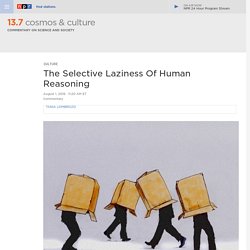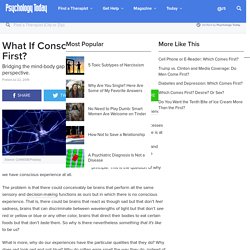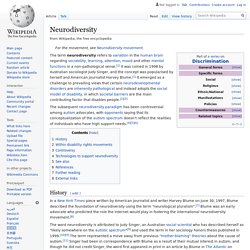

Yes, Your Opinion Can Be Wrong. Thursday, July 23, 2015 at 6 a.m. I have had so many conversations or email exchanges with students in the last few years wherein I anger them by indicating that simply saying, "This is my opinion" does not preclude a connected statement from being dead wrong. It still baffles me that some feel those four words somehow give them carte blanche to spout batshit oratory or prose. And it really scares me that some of those students think education that challenges their ideas is equivalent to an attack on their beliefs. -Mick Cullen I spend far more time arguing on the Internet than can possibly be healthy, and the word I’ve come to loath more than any other is “opinion”. There’s a common conception that an opinion cannot be wrong. 1. 2. I’ll help you with the first part. There’s nothing wrong with an opinion on those things.
To quote John Oliver, who on his show Last Week Tonight referenced a Gallup poll showing one in four Americans believe climate change isn’t real: Who gives a shit? The Selective Laziness Of Human Reasoning : 13.7: Cosmos And Culture. Gary Waters/Getty Images/Ikon Images Democrat: "Those arguments by Republicans are preposterous!

" Republican: "Those arguments by Democrats are absurd! " Sound familiar? There are plenty of reasons why political disputes can be divisive, and a host of psychological mechanisms that contribute to a preference for one's own views. For one thing, political preferences aren't just reasoned opinions; they're often markers of personal and cultural identity with strong emotional resonance. An article forthcoming in the journal Cognitive Science adds another mechanism into the mix: We're more critical of arguments offered by others than of those we produce ourselves.
To test this idea, the researchers exploited a phenomenon known as choice blindness: Under the right conditions, many people fail to recognize that a choice they made previously has been swapped with an alternative. Here's how it worked. Can You Trust Your Ears? What If Consciousness Comes First? Source: ColiN00B/Pixabay Despite the success of neuroscience in establishing a wide range of correlations between brain processes and conscious experience, there is at least one question about the relationship between the brain and consciousness that continues to appear unanswerable, even in principle.

This is the question of why we have conscious experience at all. article continues after advertisement The problem is that there could conceivably be brains that perform all the same sensory and decision-making functions as ours but in which there is no conscious experience. That is, there could be brains that react as though sad but that don’t feel sadness, brains that can discriminate between wavelengths of light but that don’t see red or yellow or blue or any other color, brains that direct their bodies to eat certain foods but that don’t taste them. What is more, why do our experiences have the particular qualities that they do? Five Elements of Effective Thinking. Tools for creating ideas. Taxonomy of the Logical Fallacies. Logical Fallacies. Neurodiversity. Neologism used to refer to neurological differences in a non-pathological manner The subsequent neurodiversity paradigm has been controversial among autism advocates, with opponents saying that its conceptualization of the autism spectrum doesn't reflect the realities of individuals who have high support needs.[4][5][6] History[edit] In a New York Times piece written by American journalist and writer Harvey Blume on June 30, 1997, Blume described the foundation of neurodiversity using the term "neurological pluralism".[7] Blume was an early advocate who predicted the role the Internet would play in fostering the international neurodiversity movement.[8] The term "neurodiversity" has since been applied to other conditions and has taken on a more general meaning; for example, the Developmental Adult Neurodiversity Association (DANDA) in the UK encompasses developmental coordination disorder, ADHD, Asperger's syndrome, and related conditions.[16] Within disability rights movements[edit]

MEDIALIST. Free IQ Test - Fast, Free and Accurate Online IQ Test. Leadership - Key Step Media. AEDIFICATIO. EMOVERE. DRĒAM af SLĒP. ETHOS. Ethice. INGENIARE. Intelligentia Artificialis. HÆLTH. MENTALIS. METIS. PHILOSOPHIA. SOCIETAS. SOME FUN NOW. VERBEIER. Harmony. Multiple Intelligences. Psycho.Logic. Sense perception.